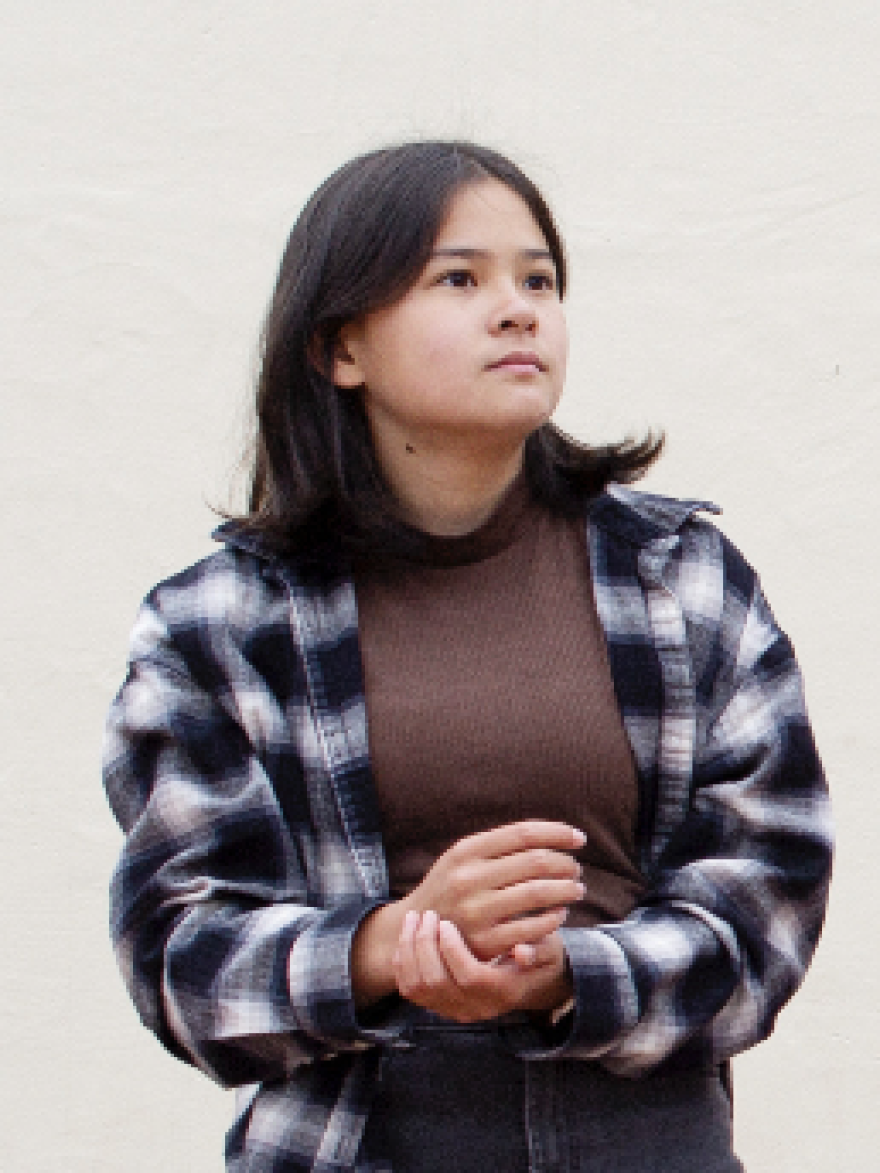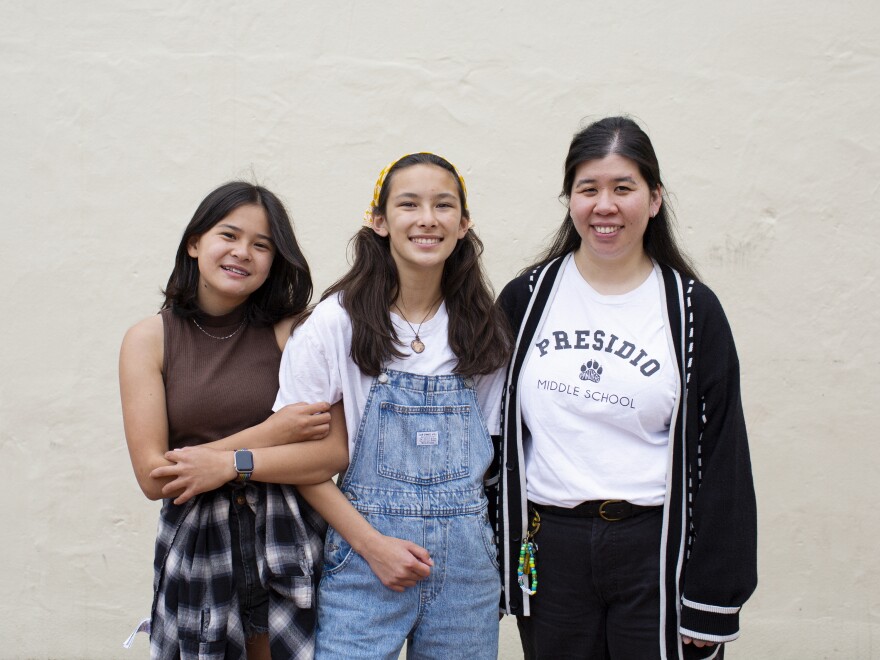School shootings, social media, beauty standards and fast-changing fashion trends – say that five times fast.
Adolescence has always been tough, but the acceleration of modern forces makes it more stressful than ever. In the words of two San Francisco best friends – the middle school winners of this year's NPR Student Podcast Challenge – welcome to Middle School Now.
In a classroom at Presidio Middle School, not far from the Golden Gate Bridge, 13-year-olds Erika Young and Norah Weiner sat down to tell us about their podcast. It is one of two Grand Prize winners chosen by our judges from more than 3,300 submissions from 48 states, as well as the District of Columbia and Puerto Rico.
The two friends just finished the seventh grade, but haven't been separated yet — they have seen each other every day since school let out. Norah shows up to our interview wearing boots that she borrowed from Erika for the special occasion. Their giddy laughter fills the empty school, their energy fueled by the knowledge that, in just a few days, they're off to summer camp together.
While our high school winner this year tackled a big local news story, with reporting from students and educators, Erika and Norah took on a more universal experience – the ups and downs of being a middle-schooler today.
"Gun violence, social media and mental health are literally shaping middle school," Norah says in their podcast.
They walk listeners through their day-to-day lives – everything from school lockdowns to TikTok dances in the bathroom – and how life in middle school today is different from when their English teacher, Jenny Chio, was a student.
"I went through it, and you guys are going through it," says Chio (pronounced CHEW), comparing her youth with the experience of today's students. "I think it's the same amount of pressure, but just amplified."
One thing our judges loved about this podcast is the way the students wove in national trends with what's happening in their own school and community. They interviewed their classmates and teachers about heavy topics that are, unfortunately, also a part of their daily lives.
Like lockdown drills.
A grim reality for middle school students and teachers

Erika and Norah say they've had lockdown drills since early elementary school, but recently, their middle school had one that wasn't just a drill – prompted by an unknown event nearby. Although everyone was fine, the experience still made the girls think differently about their relationship to school shootings.
"I can promise you that every child in our sixth- through eighth-grade school has imagined who they'd be in a shooting," Norah says in the podcast.
Erika asks, "Would they run? Would they hide?"
In interviews, their classmates share what they think they'd do in a school shooting: "I would run home and call the police"; "Find somewhere to hide and then just stay there"; "I'd try to text my parents and tell them, if anything bad happened, I love them."

Chio, on the other hand, can't remember ever having an active shooter drill when she was in middle or high school. The only emergency drills back then revolved around natural disasters: earthquakes or hurricanes. But she's all too familiar with lockdowns these days.
The student journalists asked her to show them the emergency kit in her classroom, which among other items, has one surprising ingredient: cat litter. Chio says that if a lockdown lasted for several hours, she could use it, along with other toiletries, to create a DIY bathroom.
TikTok as middle-school trend-setter
Luckily, there is more to middle school than lockdowns. One force that dominates both their virtual and in-person world? TikTok.
"Nowadays, when walking to school, you'll see girls literally surrounding the building who are dancing," Norah says in the podcast. "The dances look kind of weird because they've likely come from TikTok."
Erika adds, "You can't hear the music. And so you just see kids, like, moving their arms over their heads and like just dancing around. They look like jellyfish, and it's really funny."

But TikTok's influence goes beyond their viral dances. "Trends like baggy pants, crop corset tops, curtain bangs, ripped jeans are all instigated from this app," Erika says in their podcast.
These rapidly shifting, and far-reaching trends are an inevitable part of the middle school experience, especially since the return to the classroom after the pandemic.
"I've been to different states, and people there dress exactly the same as they do here, kids my age and it's really weird," Erika says. "Because I thought different places had different things that were popular."
Chio remembers well that feeling of trying to keep up with the latest trends, and failing. She and her students bonded over that losing battle to be "cool" in middle school.
"It's like I'm going to be uncool no matter what," Norah laughs, "so maybe I should just stick with what I'm doing right now."
But luckily, the friends have each other to make it through. And what they are doing right now, making a podcast and amplifying their classmates' voices, is still pretty cool.
To listen to Erika and Norah's podcast, click here.
Visual design and development by: LA Johnson
Audio story produced by: Janet Woojeong Lee & Lauren Migaki
Audio and digital story edited by: Steve Drummond
Copyright 2024 NPR. To see more, visit https://www.npr.org.




